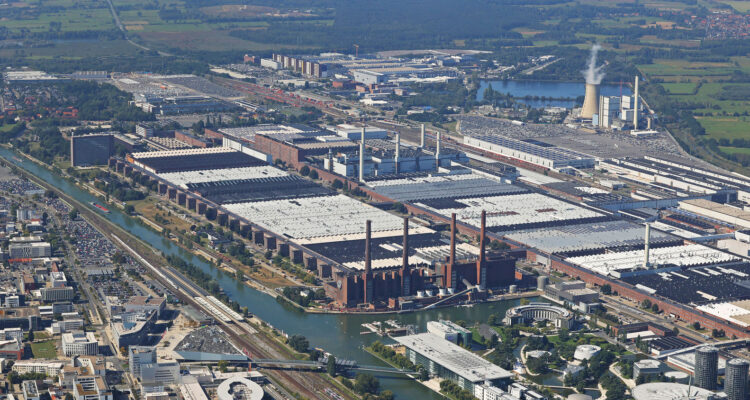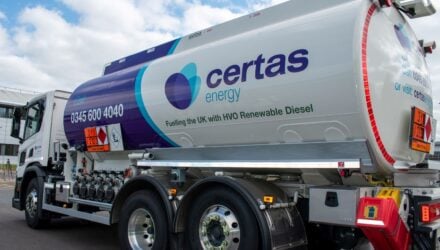Volkswagen, one of Germany’s most iconic car manufacturers, has faced significant challenges in recent years that have impacted its reputation, financial health, and operational structure. The origins of these issues lie in both the infamous “Dieselgate” scandal of 2015 and the effects of under-investment in key areas such as software, battery technology, and production efficiency.
Recently, Volkswagen has announced the planned closure of plants in Germany, one making cars and another making components, indicating the extent of its current restructuring efforts. This article examines the progression of Volkswagen’s challenges, including under-investment, and explores the solutions the company is pursuing to overcome them.
Dieselgate and Under-Investment
Volkswagen’s troubles began in 2015 with Dieselgate, a scandal that exposed the company’s use of software to manipulate emissions tests in its diesel vehicles. The defeat device allowed Volkswagen cars to pass stringent environmental tests while emitting pollutants far above legal limits in real-world driving conditions.
This revelation cost Volkswagen billions in fines and severely damaged its brand image, particularly in Germany, where consumers place a high value on environmental responsibility.
However, Dieselgate alone did not account for all of Volkswagen’s current challenges. For years, Volkswagen under-invested in crucial areas such as electric vehicle (EV) technology, software development, and supply chain resilience.
As the automotive market pivoted towards EVs and digital innovation, Volkswagen found itself trailing newer, more agile competitors primarily from China. The company’s delayed response to these market trends has now necessitated costly and rapid investment to catch up, especially in the face of growing competition from brands like Tesla and Chinese EV manufacturers.
Electric Vehicle Transition, Supply Chain Disruptions, and Plant Closures
The shift towards electrification has placed significant financial strain on Volkswagen, exacerbating its previous under-investment.
Although Volkswagen has introduced its “ID.” line of electric vehicles, including the ID.3 and ID.4, to compete in the EV market, scaling production has proven difficult. Compounded by supply chain disruptions—such as the global semiconductor shortage—and rising costs of raw materials, Volkswagen’s production has faced repeated setbacks.
Adding to these operational pressures, Volkswagen recently announced its plan to close three plants in Germany as part of a cost-cutting strategy. These closures are expected to affect thousands of jobs and highlight Volkswagen’s struggle to streamline its production process amid declining sales of traditional combustion vehicles. Further, VW plan to downsize all remaining factories with the possibility of tens of thousands of job losses.
The decision underscores the ongoing tension between maintaining a robust domestic manufacturing base and meeting the financial demands of EV investment.
Environmental and Consumer Confidence Concerns
Despite its EV efforts, Volkswagen continues to face pressure from both consumers and environmental groups. Dieselgate’s shadow still looms, and the company’s under-investment in sustainable technology has affected consumer trust, especially in Germany.
While many automakers have embraced a quicker transition to electrification, Volkswagen’s reliance on petrol and diesel models has been difficult to shake off. As a result, Volkswagen has seen a shift in its customer base, with many consumers opting for brands that appear more environmentally conscious and technologically advanced.
Volkswagen’s Strategic Response
Volkswagen’s response has been multifaceted. Acknowledging the need to regain consumer trust, the company has pledged to achieve carbon neutrality by 2050. To this end, Volkswagen has increased its investment in electric vehicles and related infrastructure, committing billions to EV research, battery technology, and vertical integration through “gigafactories” across Europe.
This shift aims to secure the company’s long-term competitiveness in the global EV market while addressing supply chain issues that have affected production.
The company’s newly announced plant closures, while challenging, are intended to streamline production and reallocate resources to its EV projects. Volkswagen has clarified that the closures are part of a broader strategy to cut costs and focus on high-demand EV models.
Additionally, Volkswagen has invested in Car.Software, a division dedicated to developing digital and autonomous driving technology—areas where the company had previously under-invested. This focus on software is a departure from Volkswagen’s traditional hardware-centric approach, indicating a shift towards a more modern, tech-forward operational model.
Government and Corporate Collaboration
To aid in its transition, Volkswagen has collaborated with the German government, receiving support for its electrification initiatives.
Government incentives for EVs and subsidies for charging infrastructure have been instrumental in helping Volkswagen overcome some of its current challenges. However, the incentives on electric vehicles ended in December 2023, though there are still incentives for companied developing the country’s charging network.
This public-private partnership reflects a shared objective between Volkswagen and German authorities to meet EU climate goals.
However, cited by Reuters, a German government spokesperson said: “It is well known that Volkswagen is in a difficult situation…The Chancellor’s position on this is clear, namely that possible wrong management decisions from the past must not be at the expense of employees. It is now a matter of preserving and securing jobs.” this means, as far as the government is concerned, the impact on jobs must be minimal.
Navigating the Road Ahead
Volkswagen’s journey from Dieselgate to EV innovation and plant restructuring reveals the scale of the challenges the company faces. Although under-investment and the recently announced plant closures have put further pressure on the brand, Volkswagen’s recent investments in electrification, digitalisation, and supply chain stability are steps in the right direction.
The company’s commitment to carbon neutrality and its efforts to reposition itself as a leader in sustainable mobility offer promise. Yet, whether these strategies will be sufficient to restore Volkswagen’s reputation and market position remains uncertain. With competition intensifying and consumer expectations shifting, Volkswagen’s ability to navigate these transformative changes will be crucial to its success in the coming years.
Author: Mark Salisbury, Editor, Fleetpoint




















